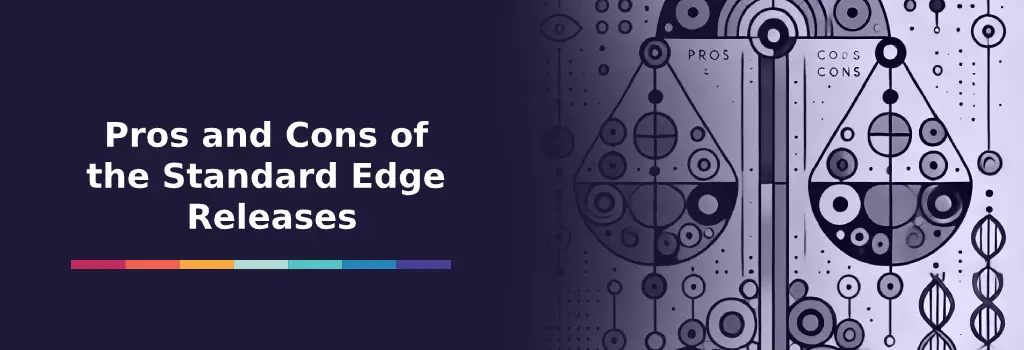Moodle is a powerful, open-source Learning Management System (LMS) widely adopted by educational institutions and organizations for managing online courses. This article compares Moodle’s Standard Edge Releases to its Long-Term Support (LTS) version, highlighting the advantages and trade-offs of each, so you can make an informed choice based on your organization’s needs.
I am Director of Rahab Ministry (a program of Youth Unlimited). We are impressed with Mindfield’s IT specialists in helping us redesign a website (Rahab.yugta.ca) and their ongoing support. They were responsive and helped us think ahead instead of waiting for us to tell them what needed to be done. We will continue to look forward to their support.
Joanna Yee
Director, Rahab Ministry.
review Source: Google Reviews
Outline
What is Moodle LTS?

Moodle’s Long-Term Support (LTS) version is crafted to provide enhanced stability and reliability, particularly for institutions that value continuity and minimal disruptions over the introduction of new features. This LTS version benefits from maintenance and security updates for an extended duration compared to standard releases, enabling organizations to maintain a stable LMS without the need for frequent upgrades.
How Does the Standard Edge Releases Compare to Moodle LTS?

Each Moodle release introduces new functionalities, improvements, and security fixes. The latest version of Moodle, released every six months, often includes cutting-edge features and optimizations for better user experience. However, these updates may also introduce bugs or compatibility issues that can impact the stability of the platform.
| Feature | Standard Edge Releases | Long-Term Support (LTS) |
|---|---|---|
| Frequency of Updates | Every 6 months | Every 2-3 years |
| Stability | Moderate, depends on new releases | High, proven stability over time |
| Access to New Features | Immediate | Delayed |
| Security Enhancements | Most current security measures | Stable but fewer new measures |
| Customization Options | Extensive (if plug-in providers update) | Limited to older plugins |
| Maintenance Cost | Higher, requires frequent updates | Lower, fewer updates needed |
| Best For | Organizations needing the latest features | Organizations seeking balance and cost-efficiency |
Pros and Cons of the Standard Edge Releases

Pros:
- Access to New Features: The Standard Edge Releases provide organizations with the most up-to-date tools, such as enhanced assessment methods, gamified learning, and better reporting capabilities.
- Improved Security: Security features in the latest release may include new mechanisms to protect against data breaches, cyber threats, and vulnerabilities, enhancing the platform’s overall security.
- Increased Compatibility with Modern Plugins and Themes: The Standard Edge Releases typically support the most recent plugins and themes, allowing users to customize the LMS with new, innovative tools.
- Higher Performance Optimization: Updates often focus on improving speed and performance, creating a smoother, more responsive experience for both administrators and learners.
Cons:
- Higher Maintenance Costs: Requires updates every six months, increasing downtime and resource usage.
- Potential for Bugs: New features may introduce bugs, which can disrupt learning activities or administrative processes.
- Higher Demands on Server Resources: The Standard Edge Releases feature may require more processing power and storage, making it necessary to invest in server upgrades.
- Training Requirements for New Features: Regular updates may necessitate frequent training for users to stay updated with new functionalities.
Pros and Cons of the Moodle LTS

Pros:
- Extended Support Period: LTS versions offer prolonged support, making them ideal for organizations that prioritize stability and want to avoid frequent upgrades.
- Lower Maintenance Costs: Ideal for organizations with smaller budgets or limited technical resources.
- Proven Stability: The LTS version undergoes extensive testing and fewer frequent changes, making it a trusted option for institutions that prioritize a stable LMS environment over new features.
- Lower Risk of Compatibility Issues: With fewer updates and feature changes, organizations using Moodle LTS face fewer issues with compatibility, particularly with custom plugins and themes.
Cons:
- Delayed Access to New Features: Users on the LTS version miss out on new features that can improve engagement, reporting, or content management.
- Limited Plugin Compatibility: Newer plugins may not always support older LTS versions, restricting customization options.
- Slower Security Updates: While LTS versions receive security updates, they may not have the latest security innovations.
- Potential for Obsolescence: If an organization stays on LTS for too long, they may fall behind in terms of LMS advancements, making it difficult to catch up later.
Tips for Choosing the Best Moodle Version for Your Organization

- Evaluate Your LMS Goals: Decide if stability or access to the latest features is more important. For most institutions looking for consistency, Moodle LTS will be preferable, while cutting-edge educational institutions might benefit from the latest release.
- Assess Technical Resources: The Standard Edge Releases require more frequent updates, which can be a challenge for smaller teams. Moodle LTS can reduce maintenance requirements for smaller institutions.
- Consider Security Needs: If data security is paramount and resources allow, using the latest version may offer better protection.
- Budget for Long-Term Maintenance: The costs of frequent updates can add up. Consider long-term financial commitments before selecting the Standard Edge Releases, or opt for LTS to minimize upgrade costs.
Benefits of Hiring Moodle Expert Developers

Hiring expert Moodle developers offers numerous advantages, transforming the platform into a powerful, customized, and scalable LMS that aligns with your organization’s unique needs. With their specialized knowledge, Moodle developers can tailor features, integrate third-party tools, enhance security, and optimize performance, ensuring a seamless experience for both learners and administrators. They manage regular updates and maintenance, keeping your system secure and compatible with the Standard Edge Releases advancements, while also providing tailored support and training to your team. This partnership fosters a long-term relationship, where Moodle experts can continually enhance and evolve your LMS, making it a cost-effective solution that grows with your organization’s goals.

